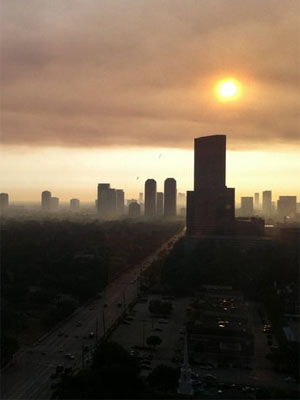City lights
 When the alien archeologists visit us, they’ll poke through the artifacts and conclude that ours was a society based around paradox.
When the alien archeologists visit us, they’ll poke through the artifacts and conclude that ours was a society based around paradox.
As a simple example, we live in cities but do not design them for living. It is as if we were hiding our true intentions from ourselves, like a gambler trying to bluff his opponents.
Nor are our offices designed for comfort. Interestingly, our commutes are not, either… nor most of our homes. We design them with luxury in mind, and a check-list of must-have items, but the actual comfort level lags behind.
For example, a typical day involves sitting in a car for forty minutes. You suffer the outrageous conduct of your fellow humans, who can’t be bothered to (a) hang up and (b) pay attention. As a result, it takes longer and is more dangerous, but mostly boring, to get to work.
At work you go in through a lobby which is essentially dead space designed to insulate you from the crazy out there in the world. Then you take an elevator filled with the body smells of others to your floor, get out and go into an office or cubicle.
Bright light rains down upon you. Air conditioning dehydrates you. They crammed everyone else into the same tiny space, so germs constantly barrage you. Noise level is high. Interruptions are frequent. Hallways go past offices and people talk in them. You can’t hear yourself think.
When that gets too exciting, you go to a meeting. The chairs here are designed to put you to sleep. Instead of a spinal support, you get a modified La-Z-Boy, which tilts backward and slides you into unconsciousness. The room is stuffy, warm, humid or otherwise unaccomodating.
When you’re on the street in the city, you’re assaulted by constant noise. It smells like smoke, exhaust, grease, dirt and people everywhere you go. The air gels over the city. The streets have meaningless names and approximate a grid, which tells you nothing about where you need to go.
Even worse is the coercive nature of the city design. Streets are channeled to corral you between major destinations. Anything off track is forgotten. The designers valued density of people rather than efficiency. The result is constant crowds.
Some day, we may become tired of coercive utilitarian designs which benefit only the fictional average person. We may get sick of how unrelentingly ugly, dirty, scary and controlling the city is. We may even throw in the towel on our ugly and inhospitable workplaces.
We would instead demand places we want to be. But this would force us to step out from our hiding place, paradox. We would have to want to like our jobs, to enjoy our cities, and to deal with our fellow citizens. We don’t want this, because it decreases the power of our individual selves and our wants. The more we use the external to force ourselves to do things, the less we must think about them. We can space out, like back and enjoy it, and retreat into our own minds and focus on our own wants.
For us to actually enjoy life would require us to want to make something of life as a whole, instead of wanting a small segment of it that we control. We would need a type of gentleman’s agreement that we all work toward a healthy goal and stop wasting time.
We would also need to work together informally to remove incompetents and nasty people. This must be informal because to do it publicly and officially is paradoxical, since the incompetents and nasty people will simply flock to that agency in order to protect themselves. Officialdom is their domain.
Humans are easy to confuse. We have been fooled into thinking that defending our individual rights is our primary goal. Individual rights just break down the whole and make an island out of each of us. By demanding rights, we have denied our right to sensible whole. Even if rights make us “free.”
A sensible whole is a society that re-designs ugly into beauty, re-factors inefficient into efficient, selects the best humans and casts the rest aside, and in general rewards us with a public life that is sensible, enjoyable and interesting.
By focusing on the separable details and not the big picture, we have sacrificed this. So we wait in cars, decay in offices, calculate entropy at home, and pretend to care about football while we wait for mortality to whisk us away. But we’re free.









